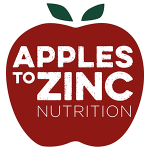How to eat for happy hormones
We have a lot of hormones!
When you mention the word “hormones” it is natural to think solely of the reproductive hormones. But did you know the human body actually produces around 200 hormone or hormone type substances and these help control metabolism, appetite levels, blood pressure, reproduction, growth, mood, sleep and sexual health? It is important that we have happy hormones!
What are hormones
Hormones are basically messages that travel in the blood and signal to other parts of the body to do a particular task. That all sounds pretty simple but issues can arise when those hormone messages are out of balance. This could mean that they aren’t being produced at all, aren’t producing enough message or perhaps sending too many messages. Imbalanced hormones are not happy hormones and won't make you feel great either!
The Who’s who of hormones
I won’t list the 200 hormones but here are some key hormones that can have a big impact on how well you feel:
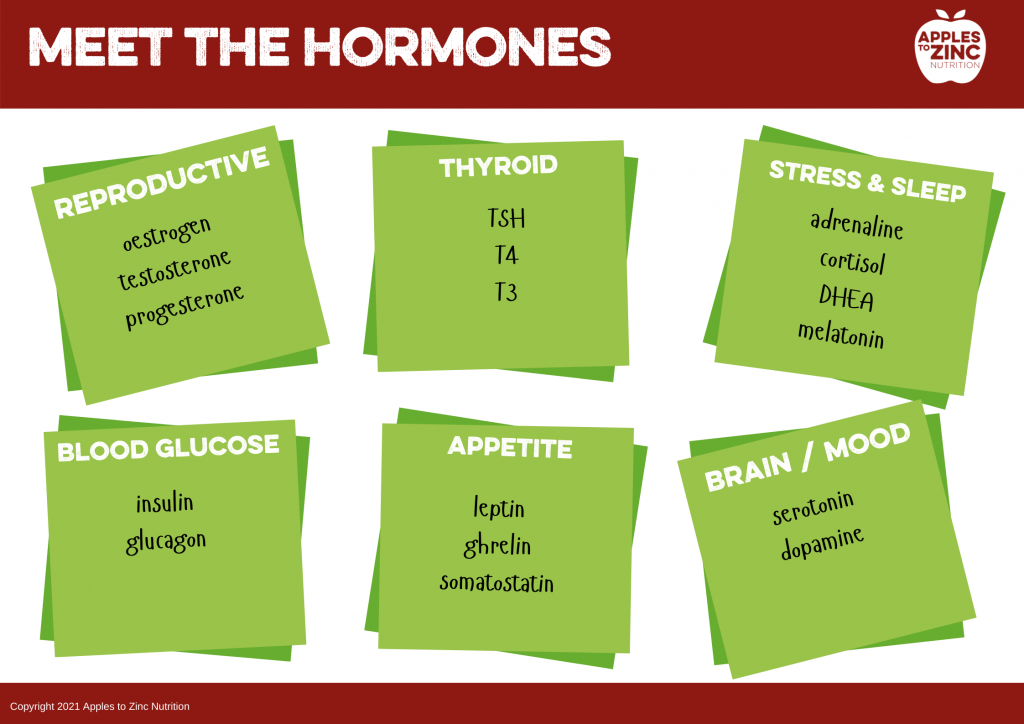
Happy Hormones - Foods and drinks that help or hinder
Sometimes the foods that we eat can give us happy hormones and sometimes pretty unhappy hormones that can make us feel pretty rotten and like our body isn't working well. Check out these top 6 foods that help or hinder your hormone balance:
#1 SUGAR
Refined sugars found in sweets, chocolate, cakes, biscuits and fizzy drinks are known to wreck havoc on many of the hormones. In particular they “stress” out the adrenal glands which produce cortisol, adrenaline and aldosterone. A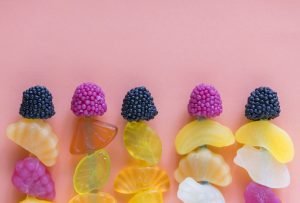 ldosterone helps to regulate your blood pressure and therefore too much sugar might be contributing to high blood pressure. Sugars also upset the thyroid which produces the hormones that set the pace of our metabolism and energy production. Government guidelines suggest adults have no more than 30g of sugar per day. This is a maximum and it is idea to have a few sugar free days each week.
ldosterone helps to regulate your blood pressure and therefore too much sugar might be contributing to high blood pressure. Sugars also upset the thyroid which produces the hormones that set the pace of our metabolism and energy production. Government guidelines suggest adults have no more than 30g of sugar per day. This is a maximum and it is idea to have a few sugar free days each week.
#2 FRUITS & VEGETABLES
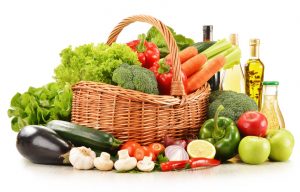
I love fruits and vegetables and they are an amazing source of vitamins and minerals. In helping hormones, the fruits and vegetables provide the building blocks – those vitamins and minerals literally help to make hormones. They also provide fibre to help us eliminate (think pooping regularly!) them safely from the body, once they are old and used. For more detail on how fruit and vegetables support hormones click here
#3 HEALTHY FATS
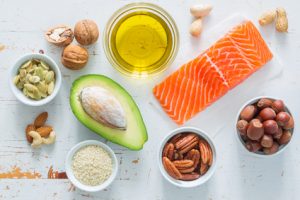
Fats have had some pretty bad press in the past but there are different types and they aren’t all bad! The saturated ones found in fried foods and processed foods are terrible for your health BUT omega 3 fats are found in foods such as oily fish (salmon, fresh tuna, sardines etc) and also in nuts and seeds and have some huge benefits.
Optimal levels of these omega 3 fats have been found to help with mental wellbeing. Specifically it appears that low intake of these fats was linked to dysregulations in biological stress systems and it is these systems that relate to stress and therefore low fat intake increases your risk of anxiety and depression.
Aim to be eating these foods in small quantities but regularly e.g 30g nuts daily and oily fish a few times per week.
Conversely, having high levels of trans fats and saturated fats in the diet in processed and fried foods negatively impacts mood and stress. These should be significantly reduced in any healthy eating plan.
#4 HYDRATION

Hormones regulate your hydration levels but dehydration can also cause issues with other hormones. Oestrogen and progesterone help to regulate how well hydrated we are but when we have a hormone upset – such as with PMS or during the perimenopause, then we are likely to become dehydrated more easily.
Dehydration itself only needs to be mild to have an impact on other hormone systems. Cortisol (the stress hormone) is increased when we are low on water. In addition, slight dehydration triggers the hormone systems that regulate blood pressure and fluid retention which may cause or contribute to health issues. Staying hydrated is key. Sipping at water throughout the day is important. Aim to have around 2 litres daily of waters and herbal teas but be mindful that on a hot day or a day when you are physically very active, you are likely to need more.
#5 PROTEIN
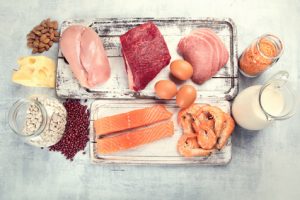
Given our hormones govern our appetite it is helpful to consume foods that help those specific hormones. Having one quarter of each of your meals (which is about a palms worth) as a protein element is ideal to ensure you get enough. Protein foods are lean meats, fish, beans, pulses, dairy products, nuts, seeds and eggs.
Having roughly that amount of protein each meal is likely to supress the hunger through release of the suppressing hormone leptin and keep you feeling fuller for long.
Furthermore, the thyroid needs protein to be able to produce it’s hormones that regulate energy production and metabolism.
#6 EGGS

You’ve got to love eggs – they are brilliant. They can be eaten in so many different ways and are packed with protein. Eggs are known to improve your sensitivity to insulin which is key with anyone struggling with blood glucose issues such as diabetes, PCOS or metabolic syndrome. As they are high in protein, they also help with appetite regulation hormones by supressing appetite and keeping you feeling fuller for longer.
What is your favourite way of eating eggs? Mine is the classic dippy with soldiers!
So there you have it - a short introduction and 6 foods that can help you achieve happy hormones!
If you need more help understanding your hormones or think you might benefit from working on your hormone balance then please do get in touch by booking a free call with me and finding out how I might be able to help you.
